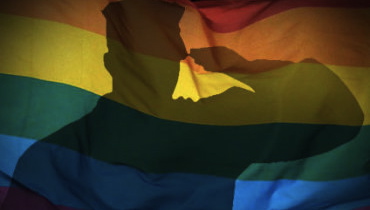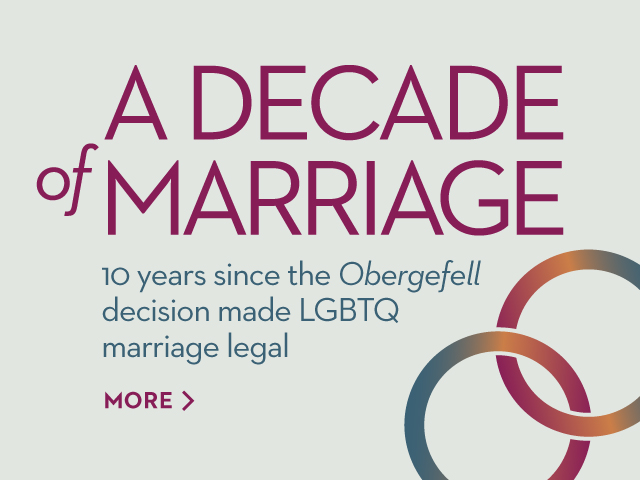 By Huong Nguyen
By Huong Nguyen
NCLR Guest Columnist
Year: 1995
I’m at my Army Reserve unit, in a windowless, closet-sized conference room. The walls are painted mustard yellow. The florescent lights, unnaturally bright. A small, government-issued table, with four chairs, sits in the middle of the room. I’m in a chair facing the door. I don’t want anyone to approach me from behind. I’m in fight mode. It started a month ago. I can recall the events with a searing clarity.
~~~
There is a movie scene in “A Few Good Men” in which a stoic Marine meticulously puts on his uniform only to put a gun to his head and pull the trigger. I remember the scene this morning as I am ending my military life, so to speak, by delivering a letter to my commanding officer in charge of the Army ROTC program. I don’t know exactly what’s going to happen, but this life no longer feels like it’s mine. My hand is steady as I pass him this letter.
It reads:
“Last week you expressed to me the fact that in an environment as diverse as ours, discrimination cannot be tolerated on any level. Your challenge to me to take a stand in upholding my personal commitment to equal treatment for all personnel both inspired and disturbed me, as it forced me to look closely at an ethical dilemma I am experiencing.
As a future officer who believes in the value of honesty, I can no longer remain silent about the fact that I am gay. Since acknowledging my sexual orientation, I find I am struggling with issues of prejudice, truth, and freedom.
As an immigrant who came to this country from Vietnam, I understand the importance of freedom and dignity. My family escaped on a boat, facing tremendous odds to seek a better life in America. I joined the military because I wanted to uphold the rights and freedoms which I cherish as a citizen of this country.
In doing so, however, I am forced to sacrifice the very freedom which I hold so dear: the freedom to speak honestly and the freedom to live life with dignity and without fear. The policy on homosexuals requires me to lie and dissemble about who I am as a condition of service. It requires me to remain silent in the face of derogatory comments about homosexuals, for fear of drawing suspicion about my orientation. I can no longer remain silent in the face of bias and discrimination.
I am a good soldier, and I know that I would make a fine officer. I love this nation and the military and I want to continue to serve. I only wish to be judged on my competence and dedication to this nation, not my sexual orientation. Please let me know what my options are.”
After reading the letter, my commander looks up at me. His deep blue eyes piercing, and incredibly sad. I hold his gaze momentarily, and reassure him with my eyes that it’s going to be okay. That I’m not going to break, or fault him for doing his job. What’s so ridiculous about the law is that neither one of us wants to be in this position. Who I choose to love has nothing to do with my ability to be an effective soldier. I know it, and he knows it, too.
He then tells me that he has to put me on administrative leave, and I am barred from drilling with my ROTC unit, until a decision is reached after a hearing on my conduct. I thank him for his time and leave his office.
On my way out of the building, the civilian secretary, who has known me for the past three years, catches my arm. She whispers, “Don’t be stupid. Wait it out. The policy will change soon.” I can only muster a weak smile, and a nod of my head.
A week or so later, the hearing takes place. Three officers—two captains and my commander—are my judge and jury. Toward the end of the hearing, one of the captains asks, “Do you wish to withdraw your statement? We would consider your withdrawal favorably in our decision.”
Unbelievable. You want me to plead that I, by mistake, thought that I was gay for the day? Thank you for your sympathy, but it doesn’t work that way. Besides, my military career can’t depend on avoiding jerks like the major and cadet.
”No, sir. I adhere to my statement, sir.”
Based on those words, the panel suspends my scholarship. They tell me that a final decision will be made on whether my discharge will be honorable or dishonorable, and if they’ll want me to pay the scholarship back. In the meantime, they will forward my paperwork to my Army Reserve unit for further trial proceedings.
~~~
A JAG lawyer, a captain with a WASPish appearance, enters the mustard-colored room, immediately seeing me sitting in the chair facing the door. Good, I think to myself, maybe he can help me navigate this legal morass.
But first, he has something to share: “I’m assigned to represent you in this matter. But first, I have to disclose that I think your conduct is immoral, and I know of a very good 12-step program in San Francisco that could help you.”
You can’t make up this crap!
`
NCLR Guest Columnist Huong T. Nguyen has shared her military dismissal under “Don’t Ask, Don’t Tell” through her weekly diary blog series. Read Part One: Where There’s a Will, There’s a Way, Part Two: Light Bulb, Part Three: A New Identity, Part Four: The Education of Private Nguyen, Part Five: The Girl, Part Six: No Air, Part Seven: The Truth Will Set You Free, Part Eight: The Trial, Part Nine: The Story, Part 10: There’s A Place For Us, Part 11: The Repeal: No One Left Behind, and Finale: Don’t Ask, Don’t Tell”: In the Olden Days.
`
Nguyen is an attorney in the San Francisco Bay Area, where she resides with her wife and two children.











